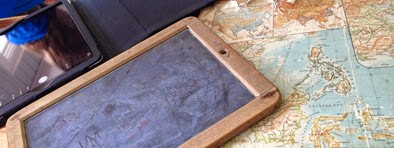As I have very little responsibility for actually implementing it, I thought I’d put my thoughts about the geography curriculum here. I would urge you to understand my viewpoint on this from reading previous thoughts. The danger of placing such a document out in the open is that people forget that it’s just a curriculum framework. An idea that sets the macro picture so that the micro-scale work can be done. I would also state that I don’t see how the development of geo-literacy and doing well in exams are different.
Recently (that is to say, tonight), I revisited the core concepts and the aims for Priory Geography. They haven’t changed in my mind. I really don’t see how the key concepts have suddenly become irrelevant, and the new curriculum content (which is very, very vague to be honest) can fit in. Of course, we could just wait for the textbook and do what they say, I believe that the cause of much stress stems from having a weak vision and plan. A strong idea of what geography is means that any government document can be moulded to fit. Those aims are below:
In addition to setting high expectations from lesson one of Year 7 (I’ve always started with the big concepts and talking about solving world problems and sitting exams), it’s important to develop children’s geo-literacy. This is about ensuring that students have the skills and knowledge needed to understand, and take part in, society. We live in a world that is dominated by geospatial data. Good geography teaching should allow the opportunity for children to make geographical decisions, to be involved in policy making and to be equipped to critically understand the world. Take UK Net migration for example. Choosing who to vote for is a very geographical decision. I like this video from National Geographical about geo-literacy.
Geo-literacy is:
Together with the enquiry approach, this should form the basis of a geography curriculum. Some other key principles is that both the BRIC and MINT countries need to be included as does an element of floating topicality. My final thoughts would be crafted after the GCSE release as, ultimately, although Key Stage 3 builds upon Key Stages 1 and 2, it also has to prepare children for success at exam level.
Anyway, below is my early thoughts about what a 2014 curriculum would look like. Remember, it’s the bones and not the flesh.


Comments
Post a Comment